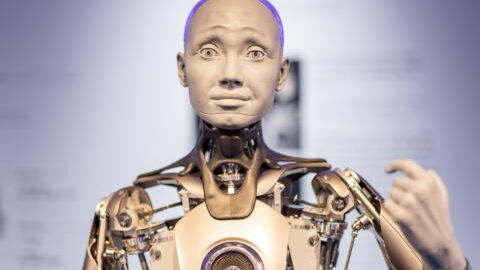The question of the 'threat of Artificial Intelligence' is not new. The Matrix, Terminator, Space Odyssey 2001, Alien... there are countless film and literary works in which an overly powerful AI turns against its creators. Until a few years ago, this kind of scenario seemed confined to the world of science fiction, but Artificial Intelligence has developed at a phenomenal and, dare we say, uncontrollable speed.
Discover our latest podcast
So, will the future of AI be beneficial or devastating for us?
What does the future hold for AI?
The question was put to 2778 researchers who have published articles on the subject of Artificial Intelligence. Unsurprisingly, they all agree that AI has not finished developing, and that it will replace human beings, step by step.
According to the survey :
[The researchers] predict that there is at least a 50% chance that the systems will achieve several important milestones by 2028, these include autonomous construction of a payment processing site, creation of an indistinguishable song from a new song by a popular musician, and autonomous downloading and development of a large language model.
The further into the future we look, the more likely AI is to supplant mankind, according to researchers. It would have a 50% chance of being superior to us in all tasks by 2047. For four specific occupations, there is a 50% chance that AI will completely replace this jobs by 2116, which is in less than 100 years. They are:
- Truck drivers
- Surgeons
- Retail salespeople
- AI researchers
This is good news, if we assume (perhaps a little naively) that human beings will be able to use all this free time to pursue other occupations that are healthier for them and their planet.
Some researchers are pessimistic
While most researchers see AI as an opportunity for our species, others are more pessimistic. The paper reads:
While 68.3% think superhuman AI is more likely to lead to good outcomes than bad ones, among these net optimists 48% gave at least a 5% chance to extremely negative outcomes such as the extinction of Humanity.
The most extreme scenario has therefore not been totally ruled out by researchers. But it's not the only one being considered.
With the advent of generative AI and tools such as ChatGPT, other types of threats are emerging:
More than half felt there was "strong" or "extreme" cause for concern about six different AI-related scenarios, including the spread of false information, authoritarian control of the population and worsening inequality.
Finally, while it's healthy to worry about the possible (and already present) excesses of AI, it's worth remembering that, when it comes to technological development, the key word is unpredictability.
No one, researchers included, is capable of predicting with any accuracy what tomorrow's AI will look like.
This article has been translated from Gentside FR.
Read more:
⋙ Artificial intelligence: Experts are warning it may lead to human extinction
⋙ We asked ChatGPT to show us the devil, and you won't be disappointed
Sources used:
Daily Mail: New survey reveals AI could drive humans to extinction - and top researchers say it would happen by dangerous groups engineering viruses, rulers controlling populations, or threatening economic inequality
Science Times: Artificial Intelligence Can Drive Human Extinction; AI May Takeover Some Jobs in 2116 [Report]















